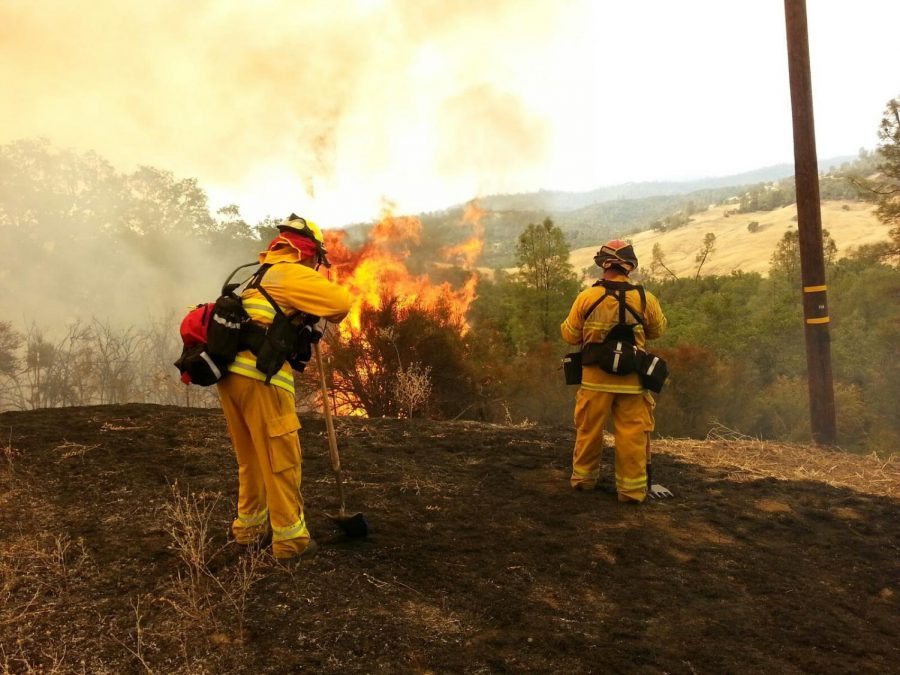Fire? Virus? What’s Next?
The infamous California Camp Fire, which was recently labelled as the state’s most destructive fire in history, brought forth the devastation of entire communities, which included the burning down of homes, properties, and schools. The unhealthy smoke from the fire reached San Francisco, and its grip over the Bay Area trapped locals indoors for several weeks and closed some schools. Though the fire was put out in November, it is still negatively impacting its victims today. Residents of Butte County are dealing with virus outbreaks, crowded camps, and coming to terms with the loss of loved ones and property.
Makeshift camps were created shortly after the disaster occured, becoming temporary homes for many families. However, an outbreak of norovirus was discovered in early November throughout many of these camps. Due to the crowded living conditions, the highly contagious disease spread and over a hundred people were infected, experiencing symptoms such as diarrhea and vomiting. In addition, Fox 40 adds, “health officials say there’s no medicine or vaccination to get rid of the illness; the best way to avoid it is to constantly wash your hands.” Over two dozen people had to be moved to hospitals as symptoms became more severe.
Many of the fire survivors’ stories are similar. Families from all over Butte County have had to find new places to live as shelters became overcrowded and the maximum amount of days which campgrounds would let them stay were reached. Firstly, Paradise Post explains that many of the fire survivors who had been staying at the Lime Saddle Campground, a California State Park, are being evicted after going past their thirty day allowed stay. Aaron Wright, the public safety chief of Northern Buttes District, explains, “I have authorized staff to allow seven day extensions at a time to the 30 day limit… We have held to the 30 day limit to give as many people possible the opportunity to utilize the campground.” The Federal Emergency Management Agency, FEMA, as well as other private agencies are making exceptions to special cases when it comes to the amounts of time they are allowed to stay in certain camps or campgrounds. Similar to Lime Saddle Campground, The Woodson Bridge R.V. Park has become home to families from Corning, California, located forty miles from Paradise, KRCR News covers. In early February, the combination of heavy rain and the park’s close proximity to the Sacramento River forced victims of the fire to evacuate the campground due to the threat of serious flooding. According to ABC10, The Borden family, another family who lost everything in the fire, found a rental home in Gridley, thirty miles from Paradise, and moved in with their large family, including a two-year-old daughter and five dogs. However, the family began getting extremely sick throughout their time living there. The Bordens later discovered an E. Coli breakout in their drinking water, and shortly afterward they were forced to move out. Similar to other victims, the Bordens had a hard time finding a new home, so they moved into an Airbnb. However, ABC10 notes “there’s a fear of leftover toxins and other hazardous materials… this week a team of roughly 20 professional cleaners start the grueling process of sanitizing the home.”
While victims of the fire are still struggling with more personal issues, Butte County has plans to start the rebuilding process. KRCR reports that their Assemblyman James Gallagher recently introduced two bills, and that they plan to work towards restoring and improving Butte County. Bill 430 aims to deal with Butte’s housing crisis. In addition, the Sacramento Bee, highlights the bill’s importance, explaining that around 140,000 homes were lost in the fire. This second bill is being pushed to deal with the increasing number of dead and dying trees in the Butte County area, which they plan on clearing out. In addition, the bill would propose the much-needed construction of a sewer system. In an interview with KRCR, Gallagher explains that he has made it his goal to, with the bills, begin to restore the town, “better and more resilient than before.”






